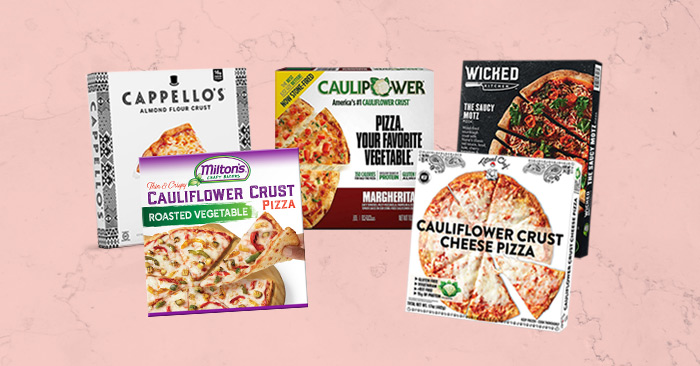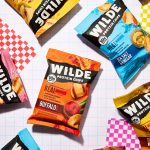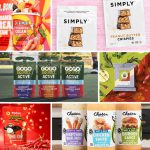Frozen Pizza Provides Platform for Better-For-You Brands

Pizza is consistently ranked one of America’s favorite foods, but when COVID lockdowns set in two years ago, demand for frozen pies heated up considerably. According to U.S. Census data and Simmons National Consumer Survey (NHCS), over 203 million Americans ate frozen pizzas in 2020.
But by 2021, consumer preferences had begun to shift as the reality of the pandemic’s longevity took hold. As Gail Becker, founder and CEO of Caulipower explained during NOSH Live Winter 2021, “people realized ‘I have to put jeans on again.’’ And thus, consumer demand for better-for-you frozen pizzas began to gain ground on conventional varieties. With this increased demand, brands have begun to view the segment as a mode to test and expand their portfolios with better-for-you comfort foods as well as reach new areas of the store.
“Data shows that frozen pizza sales are up 6.1% versus a year ago while unit sales also remain strong,” said Alison Bodor, president and CEO of the American Frozen Foods Institute. “Pair this with growing interest in better-for-you options among certain shopper demographics, and companies can find opportunities to meet consumer needs.”
Inflation continues to impact frozen pizza with prices rising 2.8% between June and July and jumping nearly 18% compared to July 2021, according to recent data from IRI. Despite these pressures, Scott Dicker, senior market insights analyst at SPINS said it expects demand for better-for-you frozen pizza to continue to grow over the next few years “as consumers are becoming ever more conscious of what products they are consuming.”

These conditions have proved ripe for innovation. Last year, Cappello’s expanded its range of almond-flour based pizzas, first launched in 2016, with a new Keto-certified line featuring a crust made with turnips. Snow Days also looked to grain-free pizza, and harnessed some nostalgia, to introduce cassava-based pizza bites last March.
Elsewhere, Tattooed Chef expanded its cauliflower crust offerings with a six-SKU vegan pizza line earlier this year, alongside dozens of other new frozen comfort-food products. And just this week, Wicked Kitchen expanded its plant-based range with a line of frozen, artisan vegan pizzas.
But not all better-for-you pizza makers have experienced continued demand.
Organic frozen food leader Amy’s Kitchen launched a veggie-crust pizza offering in early 2020, later investing in a pizza production facility in San Jose citing “significant increases in demand”; however the company abruptly closed that factory last month claiming product momentum didn’t keep pace with its expectations. The news of the closure comes amid accusations of worker mistreatment, including unrealistic production quotas and mandatory overtime, leading to 13 health and safety violations and costing the company upwards of $25,000 in Cal/OSHA fines at its Santa Rosa factory last week.
However, Amy’s pizza woes appear to be an outlier within the category’s growth trajectory. According to Dicker, the demand for frozen pizza that ramped up during the pandemic has led to significant disruption by better-for-you varieties in the category and has created a positive outlook for continued growth.
“Cauliflower was a big disruptor, and we are still seeing strong growth with those types of products growing at 19% over the past two years,” Dicker noted. “When we look beyond cauliflower, we see other industry trends taking shape in this category as well. For example, items that contain ancient grains are growing at 18% over the same time period and vegan pizzas are growing at 14%. These pockets of accelerated growth show that the demand for personalized nutrition needs are even in the categories most related to comfort foods.”
Gluten-free brand Milton’s Craft Bakers recognized that opportunity back in 2018, using it to expand beyond the center store and into the frozen aisle with the launch of a Roasted Veggie cauliflower crust pizza at Costco. The company reached deeper into the category last year, introducing four SKUs of cauliflower crust pizza which recently gained traction with several natural and conventional retailers including Sprouts Farmers Market, Raley’s and Meijer. The pizzas are set to hit Walmart shelves in October.
Milton’s CEO John Reaves said these distribution gains signify the company is on track to achieve its goal of becoming a brand “makes the absence of gluten mainstream,” with cauliflower pizzas being a key part of its strategy to establish a presence in new areas of the store and among conventional retail partners.
“Guinness is a great beer for a segment, Miller Lite and Coors Light are loved by millions of people. So it’s that context, where it was more delightful to many folks, that got us to cauliflower pizza,” said Reaves. “Similarly, Caulipower is a great competitor [for Milton’s].”
But Reaves said the brand aims to differentiate itself by positioning the pizza as something that “just happens to be gluten-free,” rather than leaning heavily on its better-for-you positioning. He said toppings tend to be lighter on better-for-you-positioned alternatives, but claims Milton’s uses a higher cheese-to-sauce ratio to create a pizza more closely comparable to the conventional varieties.
Like Milton’s, frozen plant-based brand Tattooed Chef, aims to make broadly accessible, better-for-you comfort foods. Plant-based frozen pizza provides a stable, core line that can also serve as a platform for testing new products: upcoming innovation includes pizza made with hand-tossed crusts and featuring ingredients like hot vegan honey, plant-based pepperoni, and a range of other plant-based toppings.
“Tattooed Chef is constantly innovating our tried-and-true offerings, especially in the pizza category,” said Sarah Galletti, founder and chief creative officer at Tattooed Chef. “We are launching a new line of better-for-you wood-fired plant-based pizzas that mimic what a person could find at a restaurant and want to bring that to the frozen aisle”
While its new better-for-you pizzas feature more traditional crusts, the Tattooed Chef’s first pizza line, which launched earlier this year, is made on a cauliflower crust. It said perfecting a cauliflower crust recipe that was scalable initially presented a challenge, but, once perfected, gave the company a stronger runway for new better-for-you pizza innovations.
“There’s such science to a better for you crust,” said Galletti. “To hit a better nutritional fact panel, it was essential to keep cauliflower as the number one ingredient in the crust and minimize the amount of gluten-free flour needed. Once we figured out the correct balance, we knew we could apply this algorithm to any alternative crust.”


















